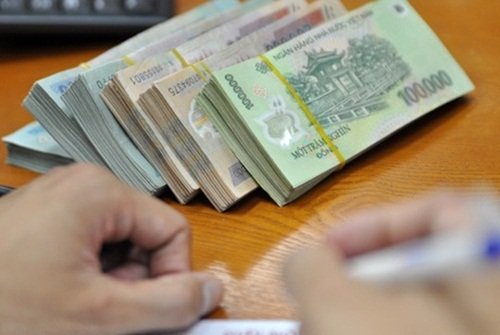Are the new regulations able to reduce mounting bad debts?

illustration photo source baodautu.vn
The government’s Decree 34, effective from April 5, has enabled VAMC to raise its chartered capital from VND500 billion ($23.36 million) to VND2 trillion ($93.46 million) and enhance its financial position in trading bad debts with credit organisations.
In addition, VAMC now has authorisation to issue special bonds to purchase bad debts at market price. Previously the company had the option to acquire only a maximum of 70 per cent of the debt market value, which now has been raised up to 100 per cent.
“I think now that VAMC is revamped with absolute power in managing bad debts under the new regulation, the company can positively speed up the process of their handling in the coming time,” said economist Le Xuan Nghia.
According to VAMC, in 2014 the company bought over VND120 trillion ($5.61 billion) worth of bad debts, yet their operations were at a standstill as they met mounting difficulties in the handling and disposing of assets and real estates and in dispute settlement and legal proceedings.
Meanwhile, financial expert Nguyen Tri Hieu noted that the new regulation has varying effects. On one hand, it has strengthened VAMC’s role in handling bad debts by injecting additional capital resource into the company and issuing special bonds, while on the other hand, failing to address the company’s rights with regard to asset sales or to create a favourable environment for bad debts trading.
Hieu thus stressed that the new regulations might not be sturdy enough to reinforce VAMC in the cleaning-up of the current mountain of bad debts.
He explained that the prospect of bad debts surging even higher could be very realistic in light of the SBV’s Circular 02 coming into force on April 1, which regulates the classification of debts, the establishment and classification of risk reserves. Banks, as a result of the new regulation, must carry out debt classification procedures in accordance with the contents of the circular, the likely impact of which will be an increasing bad debts ratio necessitating further provisions.
Hieu thus suggested that a common debt trading ground could perhaps be built in which buyers and sellers could exchange information and negotiate bad debts deals. In addition, VAMC could, in fact, act as an intermediary who buys debts from credit institutions and sells to investors. Another option would be for it to simply operate as a broker between banks and investors to trade debts.
“The debt market should not only be adapted to trade bad debts but also good debts, too,” Hieu said.
Likewise, VAMC Chairman Nguyen Quoc Hung also shared that one of the solutions for the company to accelerate its bad debts handling procedure was to sell them to foreign investors. He said that there is substantial foreign demand to take over Vietnam’s bad debts, yet the lack of an appropriate legal mechanism, particularly on bad debts ownership, has kept them from entering the market.
What the stars mean:
★ Poor ★ ★ Promising ★★★ Good ★★★★ Very good ★★★★★ Exceptional
Latest News
More News
- Global gold exchange models offer roadmap for Vietnamese market (December 12, 2025 | 11:58)
- Five million household businesses to adopt self-declared tax system (December 11, 2025 | 18:13)
- Vietnam establishes management board for crypto asset trading market (December 11, 2025 | 18:11)
- ACB offers financing to fit Vietnam’s textile and garment industry (December 11, 2025 | 09:07)
- Vietnam accelerates push for open banking (December 10, 2025 | 11:58)
- Reshaping the country’s digital finance sector (December 09, 2025 | 21:12)
- VIB's Dual Earnings solution reshapes personal money management (December 09, 2025 | 10:06)
- Foreign funds accumulate consumer stocks in Vietnam (December 08, 2025 | 11:36)
- Listed companies honoured for information transparency (December 06, 2025 | 11:59)
- Citi appoints Minh Ngo as country officer and banking head for Vietnam (December 05, 2025 | 13:40)


















 Mobile Version
Mobile Version